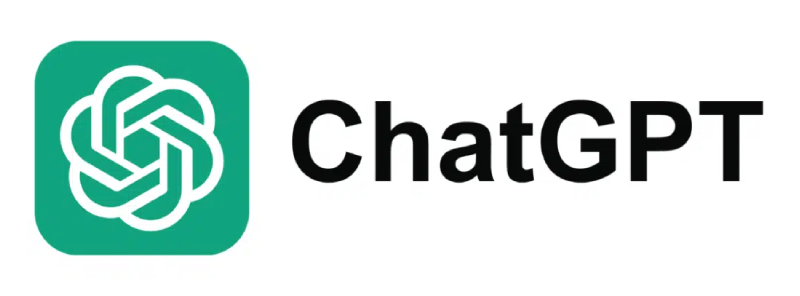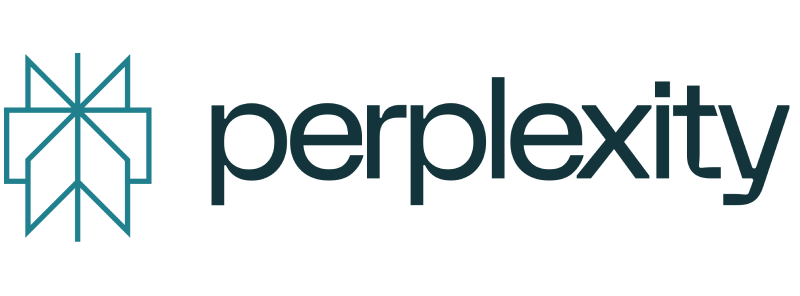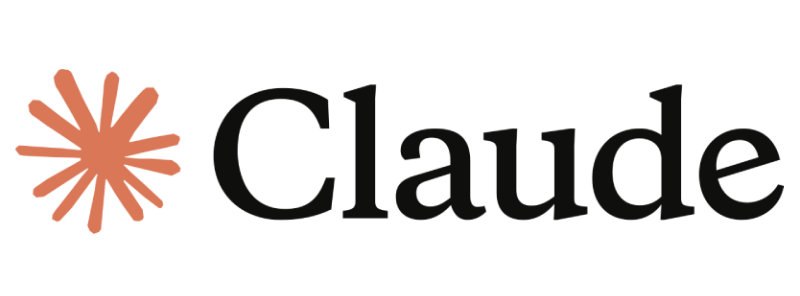Key takeaways
- Choose estate planning software based on your goals and focus on features for automation, collaboration, and security
- Choose LegalZoom for DIY wills, Estateably for workflows, GoodTrust for digital assets, Vanilla for visuals, and Actionstep for all-in-one client management
- Docupilot stands out for automating repetitive estate documents, making it a great choice for firms handling high volumes of simple plans. It offers the most affordable, flexible pricing and is the only tool on the list with a free trial
Estate planning shouldn’t feel like a maze of document drafting and data entry; instead, it should focus on providing personalized guidance to help your clients navigate emotional and complex life decisions.
With the right estate planning software, you can worry less about mundane tasks while enjoying better security, efficient client collaboration, and management.
But with so many tools available, each offering unique features and varying levels of complexity, how do you choose the right one? In this blog, we’ll guide you through the key factors to consider, helping you choose a solution that meets compliance standards and delivers a seamless client experience.
What is an Estate Planning Software?
Estate planning software is a digital tool designed to help individuals, families, and legal professionals create, manage, and organize estate planning documents more efficiently.
These documents typically include wills, trusts, powers of attorney, healthcare directives, and other legal instruments that outline how a person’s assets and affairs will be handled in the event of incapacity or death.
Factors to Consider When Choosing an Estate Planning Software
Since different estate planning software have different features, the general ones to look out for include:
Alignment with your needs and document type
There’s no one-size-fits-all estate planning tool, as most are tailored to specific users (whether individuals, financial advisors, or legal professionals) and unique use cases such as:
- Drafting Simple Estate Plans: A straightforward, automated solution with minimal customization may be sufficient
- Tax Planning: Prioritize tools with advanced tax calculations and scenario modeling to optimize wealth transfer strategies
- Probate Administration: Look for features like case management, deadline tracking, and court filing automation
- Advisory Services: Choose software that integrates document drafting, tax planning, probate management, and financial modeling for comprehensive client solutions
Identify your needs and match them with the right features for optimal estate planning results.
Efficient automation and workflow efficiency
Automation can greatly reduce the time spent on repetitive tasks, reduce human errors, and boost productivity, especially for estate planners managing multiple clients. Look for software that automates document drafting from questionnaire inputs and integrates with data sources to autofill forms, ensuring accuracy.
For complex estates, automation features like calculating estate taxes and updating asset inventories are invaluable. These features ensure that professionals stay current with changing client information and tax regulations without constant manual recalculations.
Easy collaboration
Estate planning often involves multiple stakeholders, including clients, family members, attorneys, and financial advisors. Collaboration tools allow multiple users to access and work on a document simultaneously. For example, an attorney can draft a will or trust, and the client can view it, suggest edits, or approve sections in real-time. This eliminates the need for back-and-forth emails and speeds up the workflow.
A good estate planning software should also allow different users to have different levels of access based on their role. For example, an attorney may have full access to edit and manage documents, while a client may only have permission to view and approve the final document. This protects sensitive information from unauthorized access and ensures that each user can perform their specific tasks.
Strong security
Estate planning documents often contain highly sensitive personal and financial information. Strong security measures are essential to protect client data and maintain compliance with legal regulations.
Ensure your software offers features like encryption (protecting data through secure encoding) and two-factor authentication (requiring two forms of verification). It should also comply with industry standards such as SOC 2 Type II (auditing of data handling processes) and HIPAA (healthcare privacy regulations). These ensure that all estate planning documents remain confidential and compliant with legal and privacy standards, providing peace of mind to both clients and professionals.
Top 6 Estate Planning Software
1. Docupilot
Best estate planning software for document automation

Docupilot is a document automation tool designed to streamline the creation of various legal documents, including those used in estate planning, such as wills and trusts. It excels at helping firms manage high volumes of low-value estate that don’t require intricate trust structures or advanced tax strategies.
Docupilot is user friendly just like this user testified:

It works by converting estate planning documents into dynamic templates and auto-populating them using online forms shared with clients or integrating with practice management systems like Clio and other data sources. This process reduces manual data entry, ensuring greater accuracy and efficiency.
In terms of security, Docupilot prioritizes the protection of your documents with two-factor authentication, HIPAA compliance, and end-to-end encryption. Additionally, it offers version control, allowing you to track previous document versions for easy referencing whenever needed.
Key Docupilot Features
Templates: When creating multiple documents with similar structures, there is no need to start from scratch each time. With Docupilot’s built-in rich text editor, you can easily create templates or import and edit existing ones. This ensures consistency across documents and helps streamline the process.
Merge Field: Instead of manually customizing each template, you can use merge fields as placeholders for variable data, such as names, addresses, or currencies, which automatically populate with real data. Docupilot also supports advanced conditional logic, allowing you to remove or retain specific sections of a document based on set criteria. For example, a guardianship clause will only appear if a beneficiary is under 18.
Data Capture Form: Docupilot automatically creates forms from your placeholder text, allowing you to collect information such as assets, beneficiaries, and healthcare preferences. You can copy the form link or download and share it with your clients. Once the client fills and submits the form, Docupilot will automatically populate the data into the template and generate a custom estate planning document.
Integration: If you already store your clients’ details in a client management tool like Clio, instead of asking clients to fill in their information again or manually copying and pasting data to customize templates, you can connect the data source to Docupilot.
Docupilot integrates natively with data sources like Google Drive, Salesforce, Google Sheets, and more. In addition to filling templates, Docupilot also integrates with storage platforms. If the tool you need isn’t available, you can use Make or Zapier to connect with other services.
User Collaboration: You can invite your team and assign user roles such as manager, admin, and owner. This allows you to control who can view, edit, or approve specific documents, ensuring sensitive information remains secure. To keep everyone on the same page, Docupilot also allows team members to comment on documents, aiding discussion and feedback.
Pros
- Intuitive and easy-to-use interface
- Affordable and flexible pricing
Cons
- Not best for complex estate plans
Pricing
Try Docupilot free for 30 days. After the trial, select from one of the six pricing plans. Each plan provides access to all features and includes generous credits for generating documents.

2. Estateably
Best estate planning software for workflow management

Estateably positions itself as a modern, efficient alternative to traditional estate administration methods, focusing on security, forms and accounting automation, and user-friendliness. It is ideal for law firms, fiduciaries, and estate professionals looking to reduce administrative burdens and improve client service.
Through a single intake form, the system can automatically prefill various documents, including probate forms and trusts. Estateably also supports managing multiple form versions and bulk document exports for easier estate workflows.
Key Estateably Features
- Trust Accounting and Fee Calculation: Automatically calculate compensation fees, track transactions, and generate detailed financial reports
- Beneficiary and Distribution Management: Track beneficiary entitlements and automate calculation of asset distributions
- Asset and Inventory Management: Track all types of trust assets, such as real estate, financial investments, and digital assets. It uses AI to scan financial statements and automatically update asset values
Pros
- Offers library of over 1,000 documents
- It’s a feature-rich yet intuitive interface
- It’s SOC 2 Type II compliant
Cons
- Document uploads can be challenging
- Pre-populated data is sometimes incorrect, spreading across documents
Pricing
Estateably offers product-based and need-based pricing. Product-based pricing depends on the use case.

Need-based pricing combines selected features. Although a free plan is available, it requires a demo, limiting its accessibility.

3. GoodTrust
Best for individual, family, and digital estate planning

GoodTrust is an estate planning platform focused on making estate management simple, affordable, and accessible. It stands out for helping you manage physical and digital assets like social media accounts, photos, and videos.
GoodTrust simplifies the estate planning process with a fill-in-the-blank format, which can be completed in about 20 minutes. This self-paced method caters to users with varying legal expertise, making estate planning approachable and less intimidating.
Key GoodTrust Features
- Smart Digital Vault: Securely organize, store, and share digital assets and essential documents from one place
- Future Messages: Allows users to create and schedule digital time capsules containing text, photos, and videos, which can be sent to friends, family, or even their future selves
- Family History: Enables users to trace their ancestry and create a family tree, preserving their heritage for future generations
- Protect Online Accounts: Secure digital identities and financials, including online accounts, bank accounts, and subscription services
Pros
- Offers 256-bit encryption (high-level security standard) and multi-factor authentication
- Empowers people who can’t afford legal experts
Cons
- Users complain of bugs and glitches
- Not suitable for complex estate planning
Pricing
GoodTrust offers only one pricing plan for will and trust starting at $149

4. WealthDocx
Best estate planning software for elder law matters

WealthDocx is an estate planning software for attorneys developed by WealthCounsel. It offers customizable templates for drafting essential estate planning documents like wills, living trusts, and powers of attorney, including complex planning documents like tax-sensitive trusts and business succession.
It has two versions: the Wealth Docx Core version, intended for estate planners handling simple to moderate planning needs, and the more comprehensive version, Wealth Docx Complete, which includes advanced features such as charitable planning, asset protection, and retirement solutions. The platforms have automatic updates feature to reflect the latest legal requirements and customizable client scenarios.
Key WealthDocx Features
- Comprehensive Document Templates: Offers a wide range of customizable templates (simple wills, trusts, charitable giving, and more) that can be tailored to various client needs
- State-Specific Legal Provisions: Ensures that documents are compliant with state laws by automatically incorporating state-specific provisions, which can be crucial for legal accuracy
- Regular Updates: Parent company updates WealthDocx regularly to reflect the latest legal requirements, ensuring that users are always working with the most current legal information
Pros
- Offers various templates
- Versatile for different end-of-life planning
Cons
- Some users find the initial learning curve steep
- Lacks transparent pricing
Pricing
Wealthdocx offers only custom pricing
5. Actionstep
Best estate planning software for general case management

Actionstep is a practice management solution ideal for firms handling multiple areas of law, including estate planning. While not as feature-rich as estate planning-specific tools, it is suitable for creating estate documents, managing clients, billing, and task tracking. This makes it an excellent choice for law firms seeking an all-in-one solution without the cost of a separate tool.
Key Actionstep Features
- Workflow Automation: Set up processes that ensure no steps are missed, from client intake to document execution
- Document Automation: Using client data stored in the system, you can auto-generate documents like wills and trusts, reducing manual entry and the potential for errors
- Client Milestone Tracking: Stay connected with clients and recommend updates when significant life changes happen
Pros
- Effective estate document generation
- Comprehensive solution that saves cost for multiple practice firms
Cons
- Some users report steep learning curve
- Not ideal for complex estate planning
- Glitchy search feature and account issues, causing time and financial loss for some users
Pricing
Offers only custom pricing based on use case and location
6. Vanilla
Best estate planning software for visualization

Vanilla is an estate planning software that provides financial advisors with modern, visually-driven estate planning tools. It’s known for transforming complex estate documents into clear, interactive visualizations, making it easier for clients to understand their estate plans.
Advisors can also leverage AI-powered tools like VAI Chat, which offers real-time responses to complex estate questions for better client interaction and efficiency. Vanilla also offers a document builder that allows advisors and clients to collaboratively create high-net-worth estate plans.
Key Vanilla Features
- Estate Visualizations: Vanilla creates dynamic estate diagrams that simplify complex estate structures, allowing clients to easily understand how their assets, beneficiaries, and tax liabilities interact
- Automated Estate Tax Projections: Advisors can model both current and future tax liabilities, helping clients strategize around tax minimization
- Branded Reports: Customized, client-facing reports help advisors present tailored estate plans in a visually engaging way, strengthening client relationships and aiding in client acquisition
Pros
- It’s Soc 2 Type II compliant
- Suitable for high net-worth estate plans
Cons
- Lacks reviews on review platforms like G2, Capterra, and Trustpilot making it difficult to trust their claims
Pricing
Vanilla offers only custom pricing
7. LegalZoom
Best for estate planning software for individuals and DIY plans

LegalZoom provides an affordable and user-friendly way to create a last will and testament online. It’s particularly useful for individuals with smaller estates who want to avoid the probate process.
The service offers a guided, step-by-step process where users answer a series of questions, typically taking around 15 minutes to complete a basic will. For those seeking additional reassurance, LegalZoom offers optional attorney support to review and customize documents, ensuring they are legally sound and tailored to individual needs.
Key LegalZoom Features
- Step-by-Step Guidance: Users answer a series of questions to customize their will based on personal preferences
- Attorney Support: Optional access to vetted attorneys for reviewing or consulting on the will
- Document Customization: Covers key elements such as designating beneficiaries, appointing executors, and naming guardians for minor children
Pros
- Suitable for straightforward estate planning without the need for extensive legal intervention
- It’s HIPAA authorized
Cons
- Does not support automation
- Not suitable for complex estate plan document
Pricing
LegalZoom offers two pricing plans: Individual plan and a discounted couple plan. Here’s the individual plan:

Benefits of Using Estate Planning Software
Estate planning provides several key benefits including:
- Centralized Data Storage: Estate planning software stores all critical documents, client information, and legal forms in one place. This reduces the chance of misplaced files and ensures consistency and security by keeping everything up-to-date in a single, easily accessible location
- Enhanced Collaboration: Attorneys, clients, and other stakeholders can collaborate on estate planning documents in real-time. This ensures that all parties are on the same page, reducing back-and-forth and speeding up the document review and approval processes
- Remote Accessibility: Cloud-based estate planning software allow users to access and manage documents from anywhere with an internet connection. This ensures flexibility, particularly for busy professionals or clients who need to make updates or review plans while on the go
- Time-Saving Features: Automation tools within the software help eliminate repetitive tasks like data entry and document generation. This accelerates the process of creating and updating estate planning documents, allowing professionals to spend more time on client engagement and strategic decision-making
Choosing a Suitable Estate Planning Software
Selecting the right estate planning software depends on your needs—whether you're managing simple wills, complex trusts, or digital assets. The right tool can save time, reduce errors, and enhance client service, allowing you to focus on delivering quality guidance.
For straightforward document creation, LegalZoom is a solid choice. Actionstep offers comprehensive practice management. For advanced, visual planning, Vanilla stands out with interactive features, and GoodTrust excels in managing digital assets.
For a cost-effective, easy-to-use solution that automates high volumes of simpler estate planning documents, Docupilot is an excellent choice. To try it out, sign up for a 30-day free trial today to streamline your processes and improve your client service.
FAQs
1. Why is Docupilot recommended for estate planning document automation?Docupilot excels at automating high volumes of simple estate planning documents like wills and trusts without requiring complex trust structures. It features two-factor authentication, HIPAA compliance, and end-to-end encryption for security. The platform offers a 30-day free trial and is the most affordable option with flexible pricing starting from accessible tiers.
2. What key features should I look for when choosing estate planning software?Look for efficient automation that reduces manual data entry, strong collaboration tools for multiple stakeholders, and robust security with encryption and compliance certifications. The software should align with your specific needs whether for simple plans, tax planning, or probate administration. Integration capabilities with existing systems and workflow management features are also essential.
3. How does Docupilot's merge field functionality work for estate documents?Merge fields act as placeholders for variable data like names, addresses, and currencies that automatically populate with real client information. Advanced conditional logic removes or retains sections based on criteria—for example, a guardianship clause only appears if a beneficiary is under 18. This eliminates manual customization while maintaining document accuracy and relevance.
4. What's the difference between estate planning software for individuals versus legal professionals?Individual-focused tools like LegalZoom offer DIY guided processes for simple wills and basic estate plans. Professional tools provide advanced features like workflow automation, multi-client management, trust accounting, and complex tax planning capabilities. Legal professional software typically includes collaboration features, document libraries, and integration with practice management systems.
5. Can estate planning software handle both physical and digital assets?Yes, modern platforms like GoodTrust specifically manage both physical and digital assets including social media accounts, photos, and videos. Most comprehensive estate planning software tracks real estate, financial investments, and digital assets in centralized inventories. Some tools use AI to scan financial statements and automatically update asset values for accurate record-keeping.



















